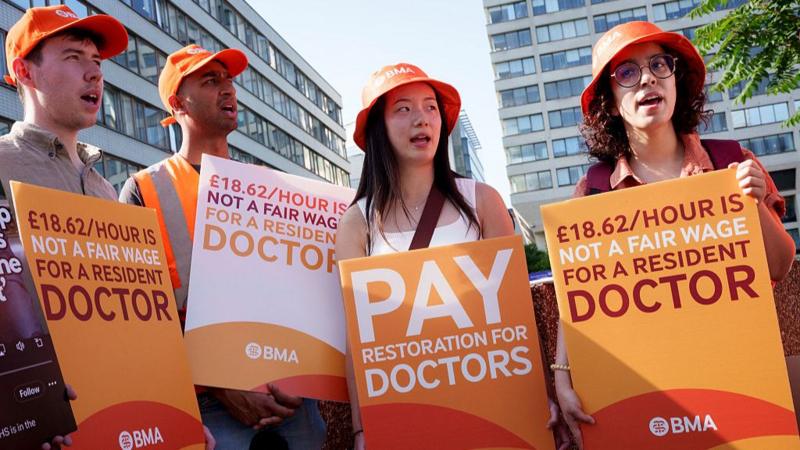Summary
Newly qualified doctors in England, known as first-year resident doctors, voted to strike over a shortage of job training places. The British Medical Association (BMA) reports that while there are 30,000 candidates, only 10,000 training spots are available, causing many doctors to be without the jobs they need to advance. The decision to strike aims to address both job shortages and pay issues in ongoing talks with the government.
Key Facts
- First-year resident doctors in England voted to strike over job shortages.
- The British Medical Association (BMA) states only 10,000 training places exist for 30,000 candidates.
- Doctors seek training places to transition from their second to their third year.
- 97% of voting doctors supported the strike, with a turnout of 65%.
- The BMA and government were already discussing job and pay issues after a recent pay strike.
- There is a high demand for doctors, but many struggle to find job placements.
- The Health Secretary focuses on working conditions rather than negotiating pay.
- Resident doctors recently received a 22% pay increase, plus an additional 5.4% this year, but BMA claims pay has not kept up with inflation.
